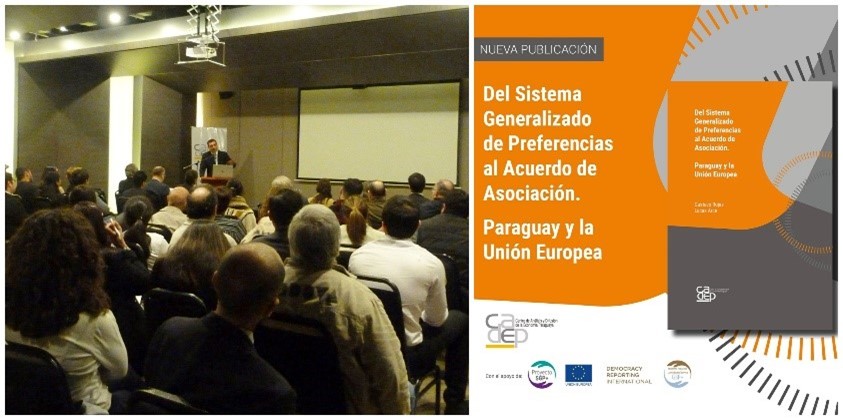STORY | Benefits of the GSP+ and challenges ahead of the scheme
Mr Michael Meyer-Resende, Executive Director, Democracy Reporting International
Mr Meyer-Resende, Executive Director of Democracy Reporting International reflected on his past experiences with the GSP+ scheme and shared a few takeaways with the GSP Hub team. Democracy Reporting International (DRI), a Berlin-based NGO with offices in eight countries, promotes democratic governance around the world and provides policy advice on that matter with a focus on institutional aspects of democracy, namely elections, parliaments, constitutions, and democracy standards. DRI worked for three years with numerous actors in all GSP+ partner countries under EU-funded projects.

The GSP+ is a win-win offer
“The GSP+ is an attractive scheme because in the relevant EU partner countries it can be presented as a win-win offer,” says Mr Meyer-Resende. “Beneficiary countries can export certain products to the EU with no duties and in return people in that country benefit from better human and labour rights protection.” Mr Meyer-Resende believes that the scheme is particularly attractive because it opens the door to discuss human rights and labour protection with groups that often do not perceive these to be issues of interest for them. “Democracy Reporting International has found that trade associations and companies were open to discuss GSP+ and to champion it, specifically in the sectors with the relevant product groups,” he says. This directly relates to the economic benefits granted by the GSP+ and suggests that the conditionality of the arrangement is effective.
Nonetheless, trade arrangements usually work in two directions. As the GSP+ is a non-reciprocal arrangement, trade preferences granted to the partner countries do not symmetrically apply to European producers exporting to the beneficiary countries. Likewise, the trade preferences impact EU importers as well as producers of relevant products imported under the GSP+. “European importers benefit from the potentially less costly products imported under the GSP+. For EU producers, however, the GSP+ comes at a cost as it can imply increased price competition. This has been the case for example for textile producers in Southern Europe,” Mr Meyer-Resende describes.
Challenges for the future
“The overall effectiveness of the incentives under the GSP+ depends on whether partner countries produce relevant products that are eligible for zero-duty export into the EU. This has certainly been the case for Pakistan and the Philippines, as reflected in their utilisation rates,” Mr Meyer-Resende reflects. “The situation is different for other beneficiaries. For example, for Bolivia and Kyrgyzstan the relevance of the GSP+ is rather limited, as these countries can export more easily in their regions, where they do not face tariffs either, but face less restrictive provisions on quality and packaging.”
Regarding the challenges ahead of the GSP+ scheme, Mr Meyer-Resende further sees a need to improve the communication regarding the arrangement. “Effectively communicating this trade scheme has been a challenge, as much of it is quite technical, starting with the name: ‘GSP+’ still does not mean anything to most people.”